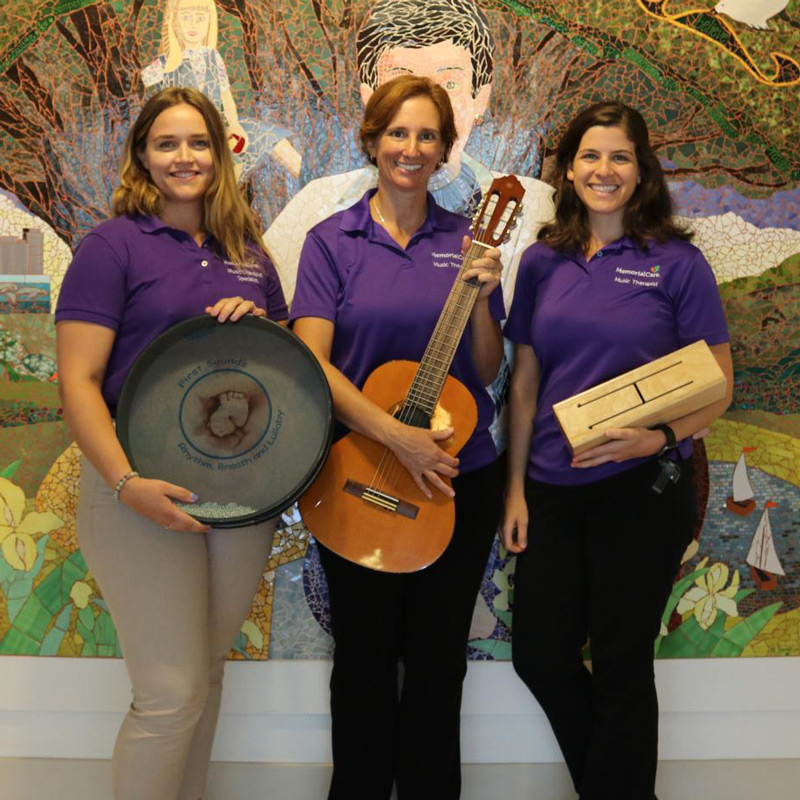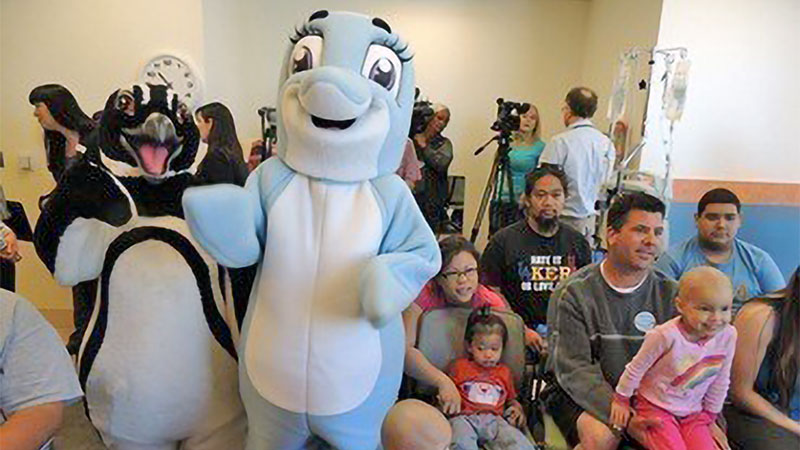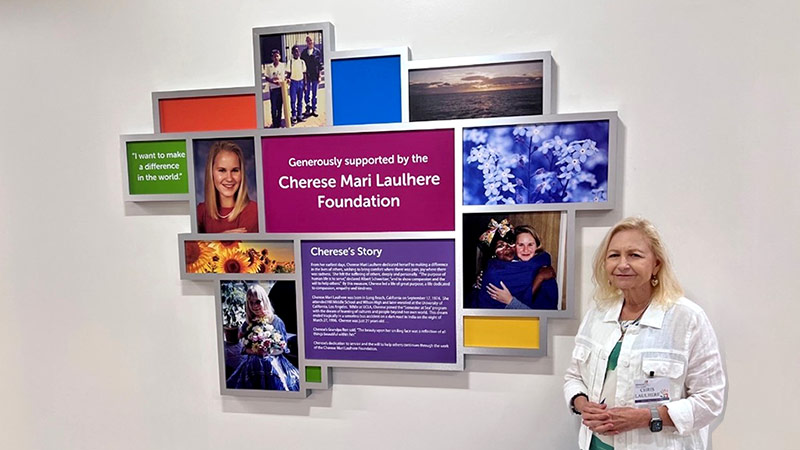Having a newborn in the hospital can be an exciting time, however, parents with a baby in the Neonatal Intensive Care Unit (NICU) can experience elevated anxiety levels and stress.
The Cherese Mari Laulhere Child Life Program at MemorialCare Miller Children’s & Women’s Hospital Long Beach works to make the hospital experience a more positive one for patients of all ages and their family by providing developmental, educational and emotional support.
A vital part of the Child Life Program at Miller Children’s & Women’s, the Music Therapy Program, uses the healing power of music to brighten the lives of patients and improve creativity, communication, confidence, while also providing a distraction for patients and families who may be experiencing anxiety because of treatments.
Music therapists work closely with both the NICU and Cherese Mari Laulhere BirthCare Center care teams to help support babies and families.
“No matter the situation, being in the hospital can be a nervous and anxious time,” says Laurel Terreri, board-certified music therapist, Miller Children’s & Women’s. “Parents with babies that are admitted into the NICU are often not initially expecting an extended hospital stay, and are usually unprepared for all of the medical issues that accompany an intensive care stay.”
The music therapists at Miller Children’s & Women’s use music to soothe and support the development of their tiniest patients by creating opportunities for parent and baby bonding, supporting development by stimulating cognitive development, and facilitating music experiences to regulate the state of babies (calming when fussy, and alerting when too lethargic/sleepy).
For families with a longer stay in the NICU, sometimes months at a time, music therapists can record a parent’s heartbeat and put it alongside a recording of the parent singing or reading a story. This gives the infants the opportunity to bond with their parent even if they have difficulty getting to bedside, by hearing the two aspects they hear when involved in skin to skin holding, their heartbeat and their voice. The only thing missing is the touch of the parent.
Care teams also bring in music therapists to help with legacy heartbeat recordings. Music therapists can record the baby’s heartbeat and place the recording in a weighted stuffed bear. This helps parents who may lose their baby shortly after child birth cope with empty arm syndrome.
“Parents that experience the loss of a baby have limited memories of their child, since their entire short life has been lived in the hospital” says Terreri. “Leaving the hospital without your newborn baby is unimaginable. We hope that the heartbeat bear provides some comfort to these parents.”




